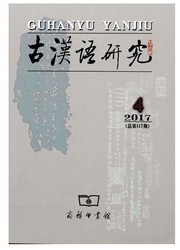

 中文摘要:
中文摘要:
《一切经音义》汇释佛经的音义,是对中古汉语词汇的一个较为全面的总结,其所释复音词、方俗口语词、外来词及其所反映的古今词义演变在汉语史研究上具有重要学术价值。《一切经音义》作为佛经词汇的一个共时聚合体和中古白话词汇的渊薮,叠置着文白相间不同历史层次的词语,所释词语大致勾勒出从上古汉语到现代汉语词汇基本格局的过渡,反映了文白演变中白话取代文言的渐变过程和汉语词义系统的演变规律。
 英文摘要:
英文摘要:
The Control of the Pronunciation and Meaning by Homonymic Investigation annotated pronunciation and meaning of Buddhist literature collectively. In a sense, the work gave a relatively wholesome summarization of words and expressions in mid-ancient Chinese. The double-pronunciation words, slang words, borrowed words, and the recorded evolution of word meaning from the past to the present annotated in the work is of academic importance to study of the history of the Chinese language. As a synchronic paradigm of Buddhist terms and original source of vernacular words of mid-ancient Chinese, the Control of the Pronunciation and Meaning by Homonymic Investigation recorded the gradual course of evolution from classic to vernacular Chinese and the principle of evolution of Chinese semantic system.
 同期刊论文项目
同期刊论文项目
 同项目期刊论文
同项目期刊论文
 期刊信息
期刊信息
